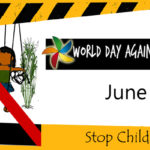India, better known as the land of vibrant traditions and cultures has traversed through time and adapted to new ideologies and traditions. While several things have changed for the better, there are still certain practices rooted in the regressive mindsets of the past, that are rampant even in today’s time and age. Practices like female foeticide are still considered part of tradition in many parts of India where people act out of ignorance and the lack of education.
In a recent case, four people were arrested in Delhi for being involved in conducting pre natal sex determination tests. Acting upon information received from officials from Haryana, the police sent in a pregnant woman to said clinic to confirm the crime. Once they determined the same, the three people involved in conducting the ultra sound to determine the baby’s sex, were booked for the crime. Such swift action from the officials and cooperation from people who notice practices like these being carried out can indeed lead to the effective utilization and implementation of the laws in place.


Female foeticide, or the selective abortion of girls in the womb are a result of the perpetuation of beliefs that treat boys as the breadwinners in the family, thus superior, while girls are seen as a liability and a burden for the family. Contributing to the declining sex ratio, female foeticide and female infanticide not only cost the lives of thousands of girls every year, but also seriously traumatize the mothers who are punished for giving birth to a girl child.
In order to prevent and keep a check on this, the government of India has banned the practice of prenatal sex determination in both public as well as private hospitals along with all clinics. The Pre-Conception and Pre-Natal Diagnostic Techniques (Prohibition of Sex Selection) Act, 2003,makes it illegal to determine the sex of the unborn child or even use sex-selection technologies. This also banned all methods that try to influence the sex of the child before conception.While there are several laws in place to curb these practices, the problem lies in the effective implementation of the same.
At Centre for Social Research, we have been involved in ending prenatal sex determination for many years now. We are a nodal agency for Prime Minister Modi’s Beti Bachao Beti Padhao campaign, and have held many awareness generation activities in this regard.
Making and implementing these laws are a challenge in itself however, the bigger challenge faced by our society today is the prevention of these practices in the very first place. A narrow mindset and the lack of education are the root causes of any form of gender discrimination. Leading the way ahead, we must as a part of the society support equality and express zero tolerance towards any form of gender discrimination, to challenge such regressive ideas and practices. In addition to that, people in rural areas who are more vulnerable to giving in to practices like these in the name of culture, must be educated to see rationality and not blindly follow age old meaningless beliefs and traditions.





